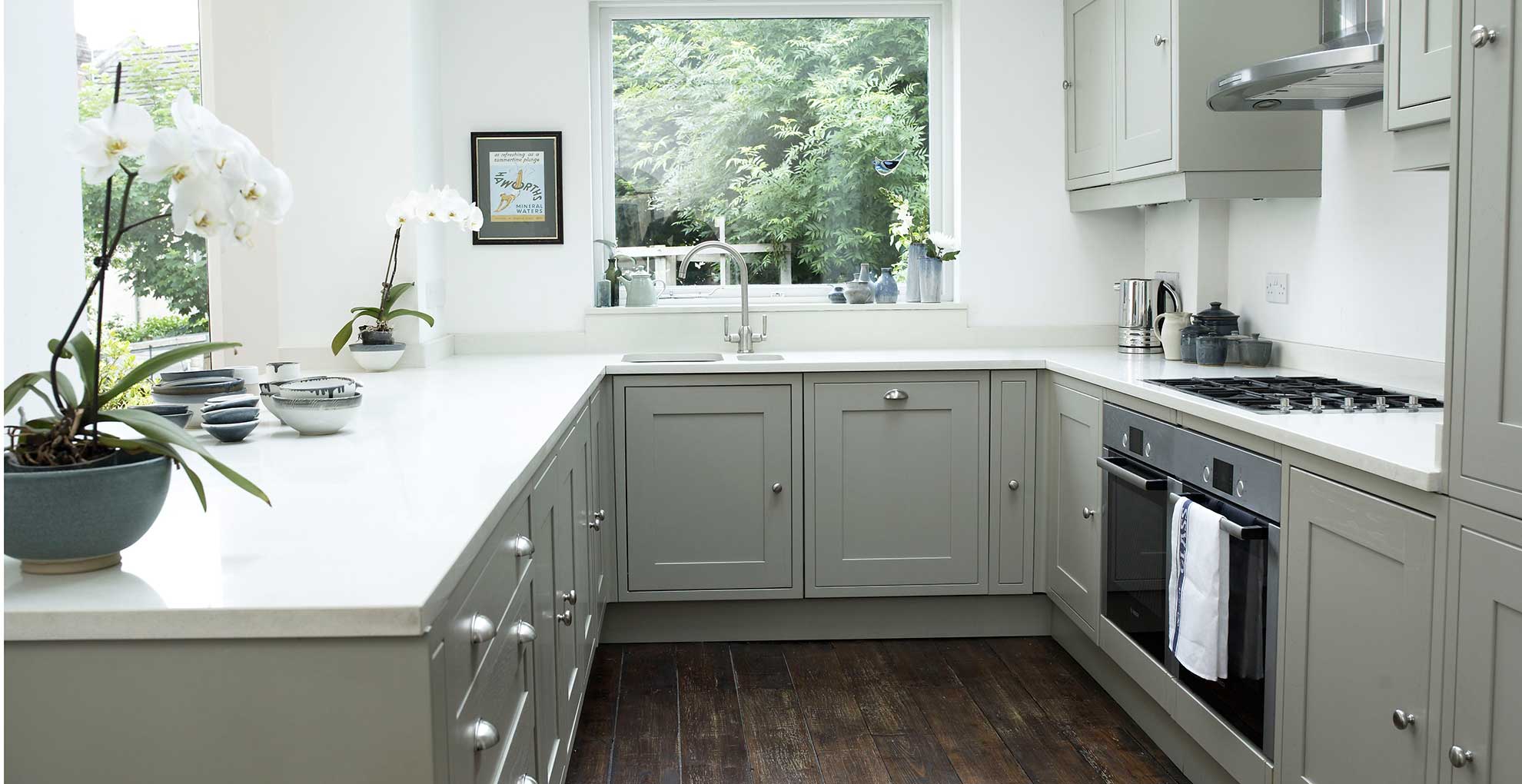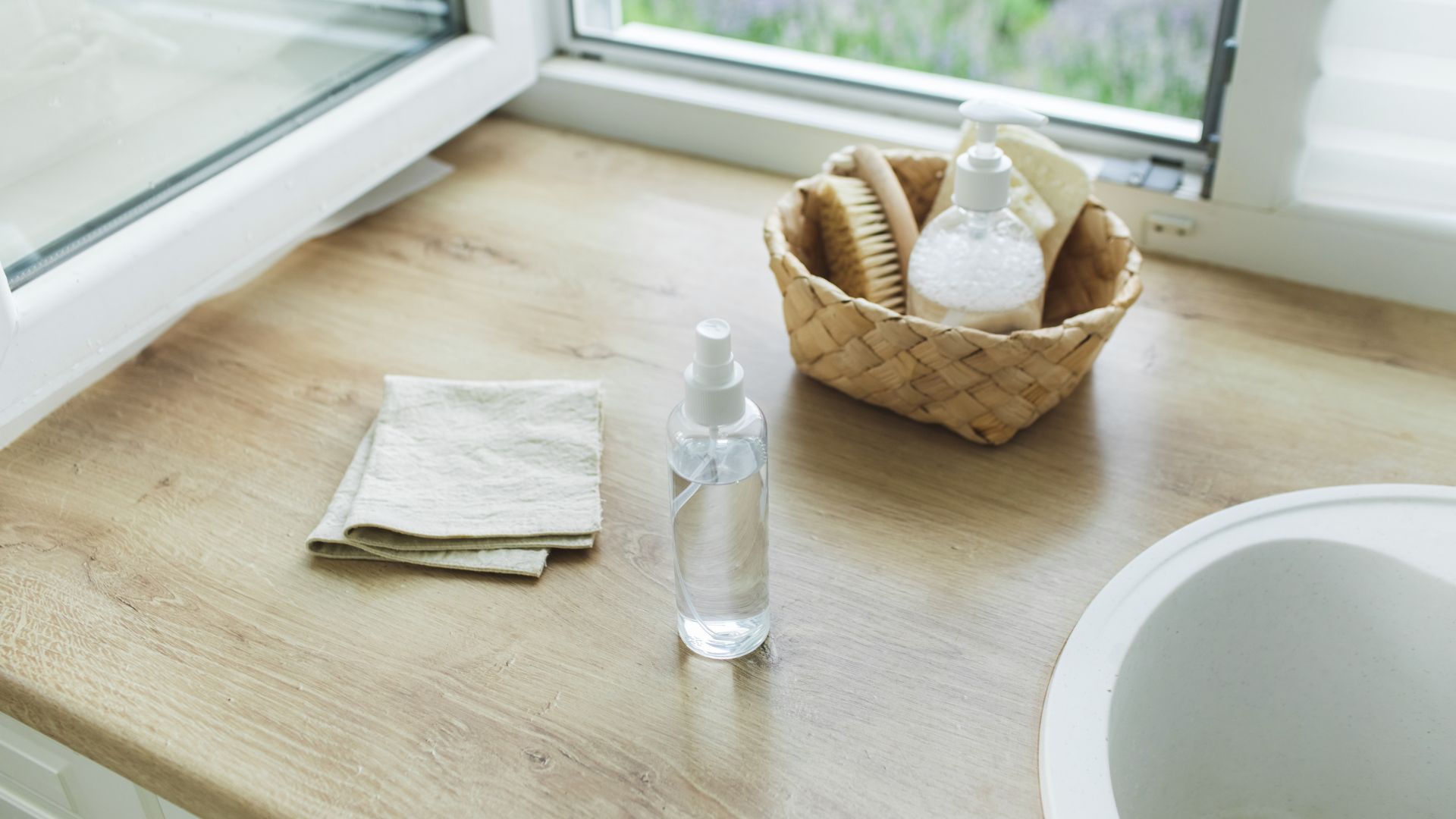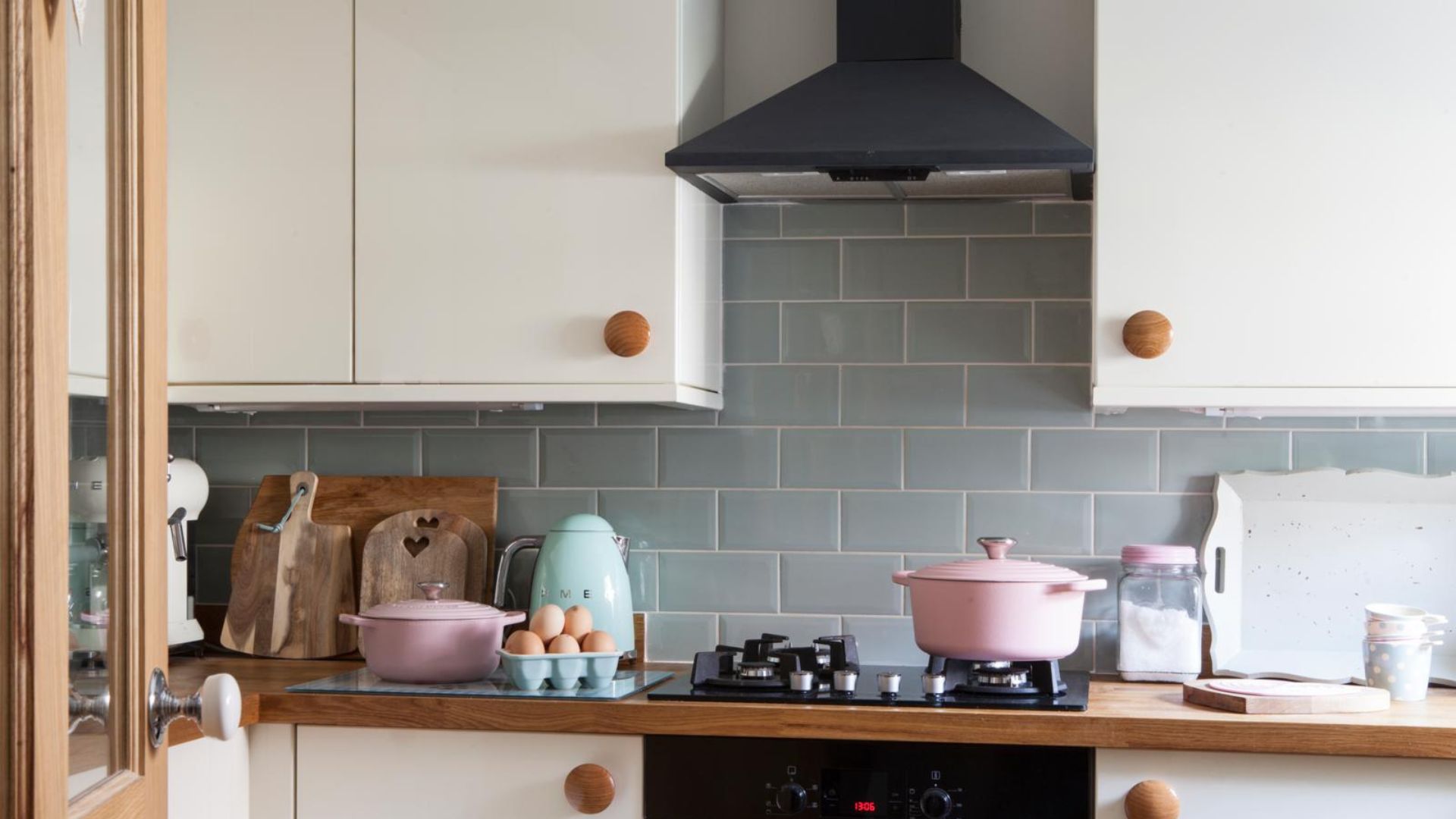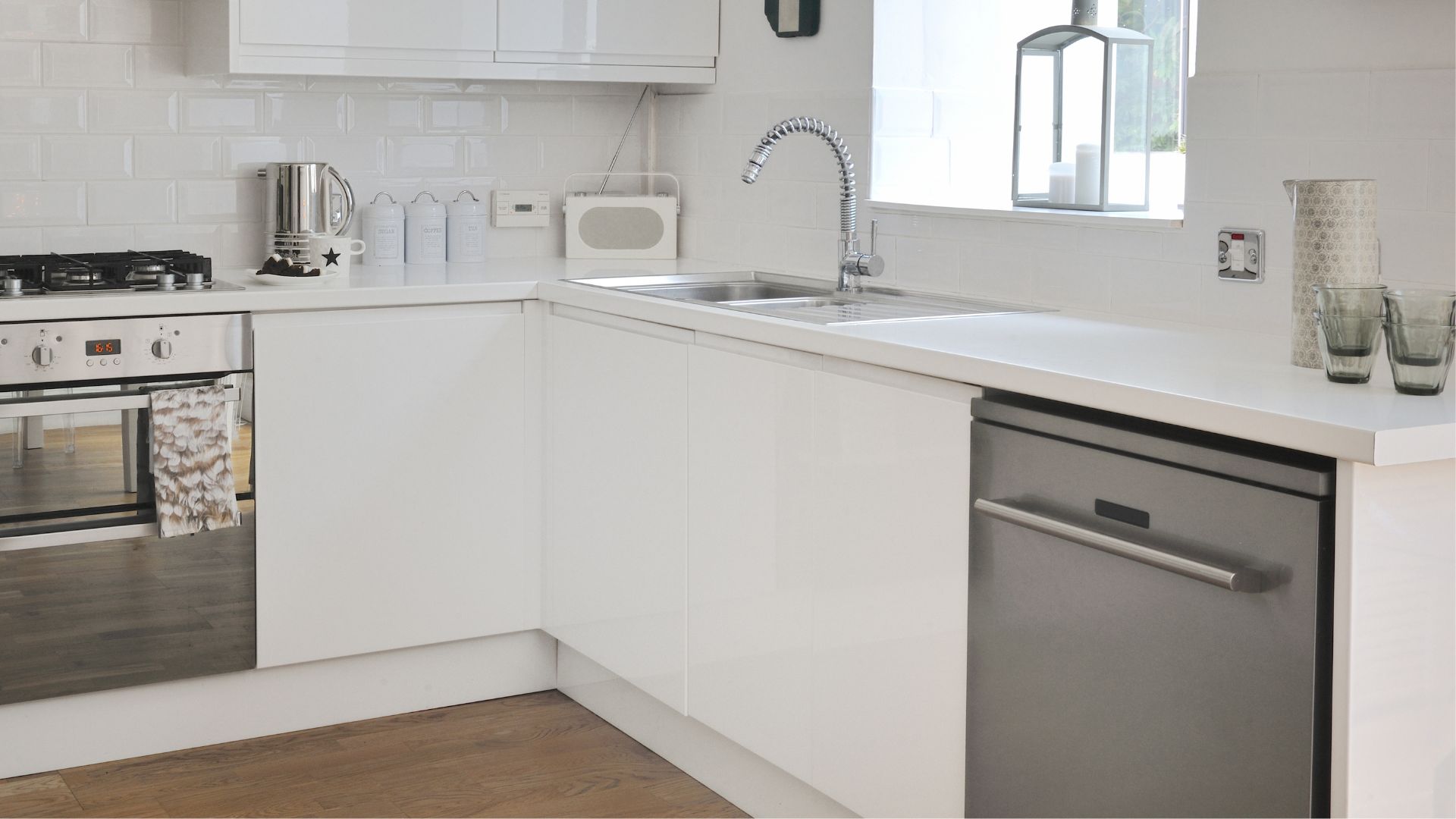
As one of the most used and loved spaces in any home, our kitchens can very quickly become messy which is why you often prioritise cleaning it so regularly. Cleaning the kitchen seems simple right? However, experts say there are common cleaning mistakes that are all too easy to make, which can cause damage to your kitchen.
You may think you know all the essential tips for a clean kitchen but some of the methods we've come to know and love can cause more harm than good, from damaging surfaces with harsh chemicals to ignoring hard water damage.
So if you're looking to keep your on-trend kitchen looking its best for the longest time, there are common mistakes you need to avoid.
5 common kitchen cleaning mistakes you could be making
Speaking to hospitality industry expert, Peter Hansen, he says: "Your kitchen's longevity and beauty rely heavily on regular maintenance and mindful usage. The correct care goes a long way in keeping your favourite space looking and working great."
These are the things you need to avoid when cleaning your kitchen...
1. Overusing bleach

Bleach is undeniably a wonder product when it comes to cleaning any space in our homes, it can even help to get rid of mould from fabric. However, there is such a thing as too much bleach when tackling the surfaces in your kitchen, especially when you're using it too often.
When it comes to daily cleaning, bleach is way too strong and harsh. Peter suggests, "Unfortunately, harsh chemicals are too much for everyday cleaning and lead to discoloured cabinets and damaged surfaces. Instead, swap that bleach out for a gentler, eco-friendly option and save the bleach for deep disinfection to avoid damage."
So perhaps skip the bleach when you're completing your daily habits to keep your house clean, we highly recommend cleaning with baking soda as an effective natural alternative.
2. Ignoring hard water damage

Hard water can be quite the silent killer for your appliances and fixtures, sometimes before you've even realised, your tap is covered in that white crust and you're googling how to get rid of limescale. Peter says it's key to stay on top of any hard water damage you spot.
"That’s the telltale sign of hard water damage, which, if ignored, learns to corroded fixtures and clogged kitchen hardware," he explains.
To combat the limescale he suggests cleaning with vinegar, saying: "To prevent this, regularly wipe down surfaces with a vinegar solution to dissolve these deposits and leave your kitchen shiny." Knowing how to descale your kettle properly is also important for helping with the longevity of your appliances.
3. Poor air ventilation

We're all aware of the damage damp and poor ventilation can cause in different rooms in your home, so it's no surprise that your kitchen is no exception. Where you may switch on one of the best dehumidifiers in your living room, the trick here is ensuring your range hood is working at its optimal level.
Peter explains, "Cooking fumes, grease, and moisture can linger without proper ventilation. This lack of ventilation leads to sticky film on cabinets and walls and increases the potential for mould growth."
To avoid this, Peter suggests making it a habit to switch your range hood on whenever you cool and make sure to clean the filter regularly. This will also help if you're looking for ways to make your kitchen smell good!
4. Using strong chemicals on your countertops

Similarly to using bleach, it's important to be wary of what cleaning products you're using on your kitchen surfaces. What you might use when cleaning your kitchen sink drain may differ from what you spray on your marble kitchen countertops.
"Natural stone, wood, and some synthetic countertops can be sensitive to harsh chemicals, leading to the finished etching, staining, or dulling," explains Peter. Rather than using strong chemicals, go for a PH-neutral cleaner and avoid using abrasive pads as they can scratch the surface of your counters.
For example, you can clean your glass stovetop with vinegar or baking soda whereas your wooden dining table would fare much better with a simple disinfectant spray.
RRP: £4.50 | This spray is not only environmentally friendly but also strong and effective for tackling any grease in your kitchen. It's free from fragrances, dyes and petroleum solvents which means your counters are safe.
RRP: £2.69 | Not only is this a tough degreaser it's also a powerful anti-bacterial and will leave your organised kitchen countertops sparkling. It's also scented so your kitchen will smell of citrus goodness.
RRP: £5.50 | These cloths are the perfect partner for your eco kitchen spray, as an alternative to the traditional synthetic sponge they are reusable and fully compostable. The pack also comes with four different colours so you can assign one per room or area.
5. Not loading your dishwasher correctly

Everyone has their custom method of loading their dishwashers, with different sections for plates and bowls for optimal loading. However, it turns out there is a right and wrong way to do it, preferences aside. This common dishwasher mistake could cost you your favourite dishware.
According to Peter overloading or incorrectly placing your dishes can not only lead to broken plates and bowls but also leave you with very poor cleaning results as the water jets become obstructed. To avoid this Peter says, "Pack the washer so no dishes are criss-crossed, and each item is securely placed. This will ensure the water and detergent reach every item."
It's also important to know how to clean your dishwasher to keep it hygienic, this will also help with the appliance's efficiency.
Considering these mistakes, it's clear now what kitchen cleaning hacks are worth your time and which ones should be forgotten. So whilst you stop reaching for the bleach and reconsider your dishwasher stacking technique, following a simple step-by-step guide to cleaning your kitchen will keep your space looking pristine for much longer.







